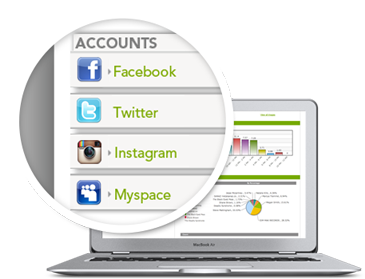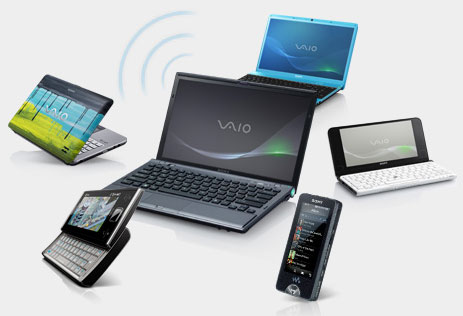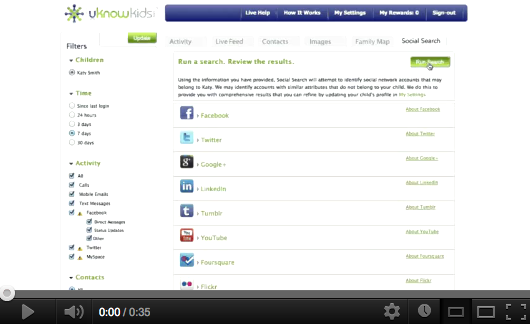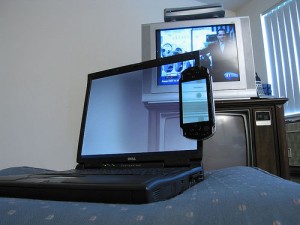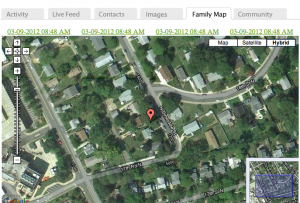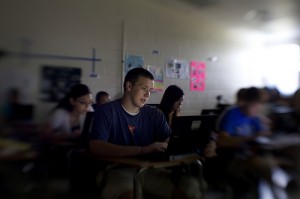The title might turn you off, but don't be offended. Spying on your kids is not always a negative and can be thought of as something that needs to be done to ensure their health and well-being. Spy the proper way by following the steps outlined below.
It's Not an Option: Facebook Monitoring Is A Necessity For Kids
 Everyone parent wants to be the "cool" parent. You don't want to be one of those parents who won't let their child have a Facebook account because it could be too dangerous. And when you mentioned to your child that he could have a Facebook account, you thought his face might break because he was so thrilled. And he couldn't get to his computer fast enough to get signed up. Before the night was over, the amount of friends he had was climbing. At last count, he had over three hundred, which is more than you have on your Facebook page. You've had yours for three years.
Everyone parent wants to be the "cool" parent. You don't want to be one of those parents who won't let their child have a Facebook account because it could be too dangerous. And when you mentioned to your child that he could have a Facebook account, you thought his face might break because he was so thrilled. And he couldn't get to his computer fast enough to get signed up. Before the night was over, the amount of friends he had was climbing. At last count, he had over three hundred, which is more than you have on your Facebook page. You've had yours for three years.
Safety Advantages of Social Network Monitoring
Young children are online throughout the day by using their Smartphone. This means that a parent will need a way to ensure their child's online safety. This can be done by using a social network monitoring solution.
An article on the Calgary CTV News website has various strategies that can be used for social network monitoring. The goal is to ensure that your children are kept safe when using various social media sites available online.
Parental Monitoring: Five Reasons Why It’s Okay to be the “Bad Guy”
When it comes to kids and their online activities, the term parental controls has been replaced by parental monitoring. Children are more technologically savvy than ever before, and they can easily get around most of the controls that you put in place. If they have Internet access, all they have to do is Google something for more information. Furthermore, YouTube is becoming more popular each day for its entertaining content and for the fact that it often has step-by-step, how-to videos on virtually anything.
Young kids also know not only how to make cell phone calls and send text messages, they can download and use most smart phone applications. Overall, developing technical skills and gaining independence is beneficial to kids. However, as the saying goes, greater freedom comes with greater responsibility.
70% of Teens Hide Their Online Activity
Parental monitoring is difficult to begin with. It's no longer just about the family computer, but about knowing what your teen is up to on the laptop, iPod, Xbox live, and smart phone. And to make it even more difficult, your teen is probably actively trying to hide their Internet activity from you.
7 out of 10 teens report hiding their online activity from their parents, whether by minimizing browser windows when you enter the room or using a device they know you don't or can't monitor as closely.
Account as Facebook Spy Tool Used On High Schoolers: Kids Safety
Apparently, parents aren’t the only ones addicted to spying on their kids. Worried about cyberbullying and facebook bullying Clayton High School principal Louise Losos came up with what she thought was a clever idea for keeping an eye on the students at her Missouri school. She allegedly created a Facebook account for a “Suzy Harriston” with a generic profile photo of a group of penguins. “Suzy” friended about 300 people before someone outed her:
"No one seemed to question who Harriston was. That is, until the night of April 5, when a 2011 grad and former Clayton quarterback posted a public accusation. “Whoever is friends with Suzy Harriston on Facebook needs to drop them. It is the Clayton Principal,” wrote Chase Haslett. And then, Suzy Harriston disappeared, say those who saw the profile." via Clayton High’s principal resigns amid Facebook mystery.
Every Network is a Social Network: Keep Your Kids Safe
Although Facebook and MySpace might be the sites that first come to mind when I say “social network,” it's really more than just that. Lots of big, popular places that your tween or teens visits frequently are actually social networks, and the same kids safety rules and precautions need to apply.
Social networking is any web-based platform that allows users to connect or interact with each other in some way. Understanding that, look beyond just Facebook and think about what other sites fall under that definition.
If you think it fits a lot of sites, you're right. Most users like to have the ability to interact with each other when they're online – hence the option to leave a comment below online news stories, for example – and many sites now offer social networking in one form or another, even if that's not their primary service.
So what does that mean? Social networks can be anything, from YouTube to Xbox live to Club Penguin. If you want to search across the most popular social networks to see if your child may have a profile there, check out uKnowSearch here and sign up for uknowkids today to find out where your child has a social network.
Limiting Screen Time for Your Kids Safety
When I was growing up, the term “screen time” hadn't made its debut in the parenting expert arena. My parents needed to set limits on our TV time, and that was about where it ended. Of course we have a lot of other screens we need to worry about now, and they seem to be even more addictive than the television.
I know that my own kids are much more drawn to playing Angry Birds on their Android phone than watching The Disney Channel, and the teenagers I know are spending most of their time on Facebook instead of MTV.
10 Essential Features for Parental Monitoring Software
Looking for an alternative to parental control software? As many of you know, parental control software is an an old fashion lack-luster tool for helping parents trying to keep kids safe online. A more modern approach is the use of parental monitoring software or services. When looking for the right fit, how do you know which products will be worth your time and give you a good return on your money? To get the best protection possible for your kids, look for Parental Intelligence Systems or services with these 10 essential features:
-
Monitors their accounts, not a specific device. Kids access the internet from smartphones, iPads, iPods, gaming consoles. They might use the family computer at home, at a friend's house, or even at the school library.
Social Networking and Internet Safety in High School Classrooms
As a high school teacher, I often run across the road blocks my school district has set up to inhibit students from using social networking sites during class time. Much like parental controls this is tactical maneuver from schools intended to protect the students. Unfortunately it’s not unlike sticking a finger in the proverbial damn. The plethora of social media sites that high school students have access to is astounding. And which ones are popular or trendy changes on a weekly basis.
Don't Talk To Strangers: Facebook Monitoring
 In March, Ashleigh Hall’s name was splashed across newspapers everywhere after her body was found in a ditch. The 17-year-old had done something that a worrisome number of teens do: made a new friend on Facebook and gone to meet him.
In March, Ashleigh Hall’s name was splashed across newspapers everywhere after her body was found in a ditch. The 17-year-old had done something that a worrisome number of teens do: made a new friend on Facebook and gone to meet him.
A 2006 survey commissioned by Cox Communications with the National Center for Missing & Exploited Children reported that:
- 71% of teens reported receiving messages online from someone they don’t know
- 45% have been asked for personal information by someone they don’t know
- 30% have considered meeting someone that they’ve only talked to online
- 14% have actually met a person face-to-face that they’ve only talked to on the Internet (the figure for teens ages 16 and 17 jumps to 22%)
In Ashleigh’s case, her new friend was a predator who had lied about his identity, posing as a 17-year-old boy. Many were quick to point fingers at Facebook: can’t they do more to prevent people from lying about who they are online?
Read More »

